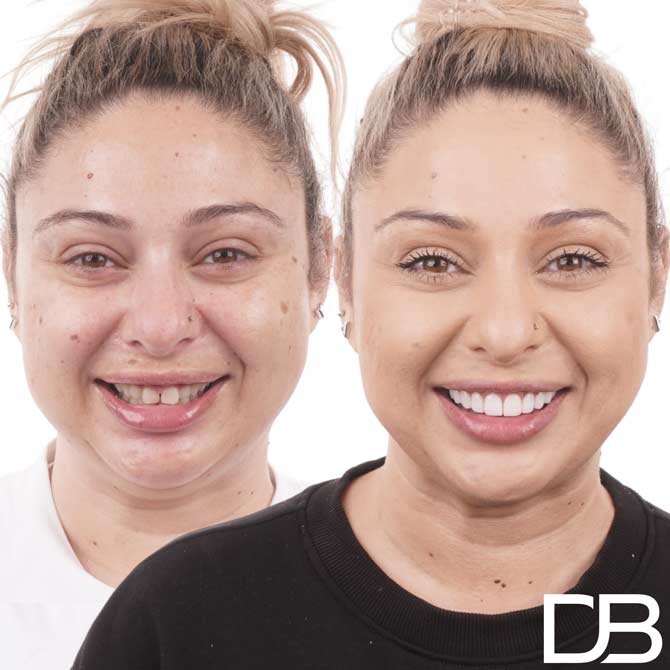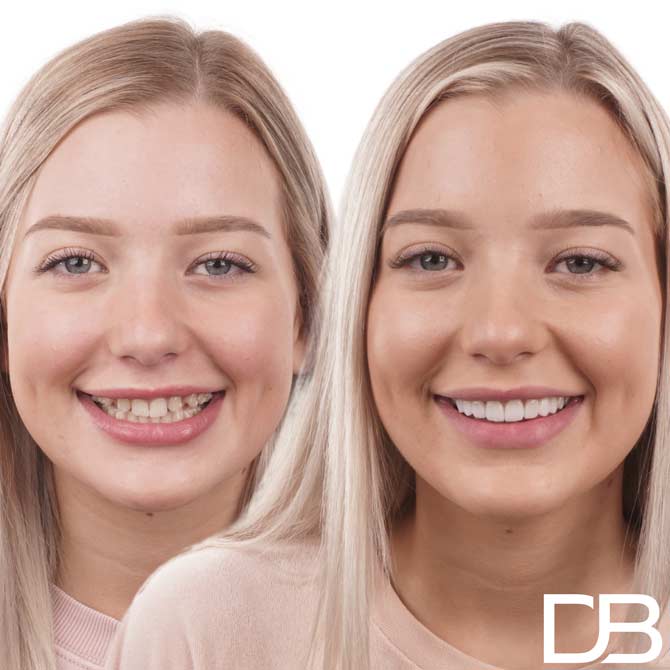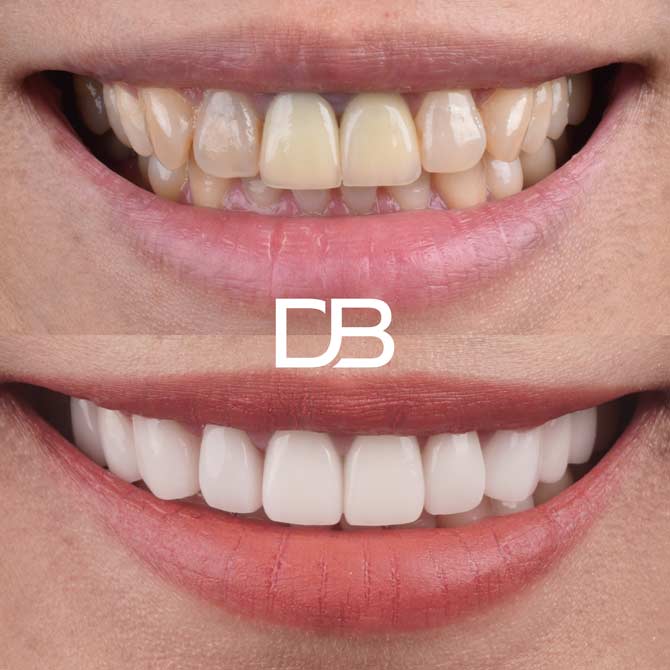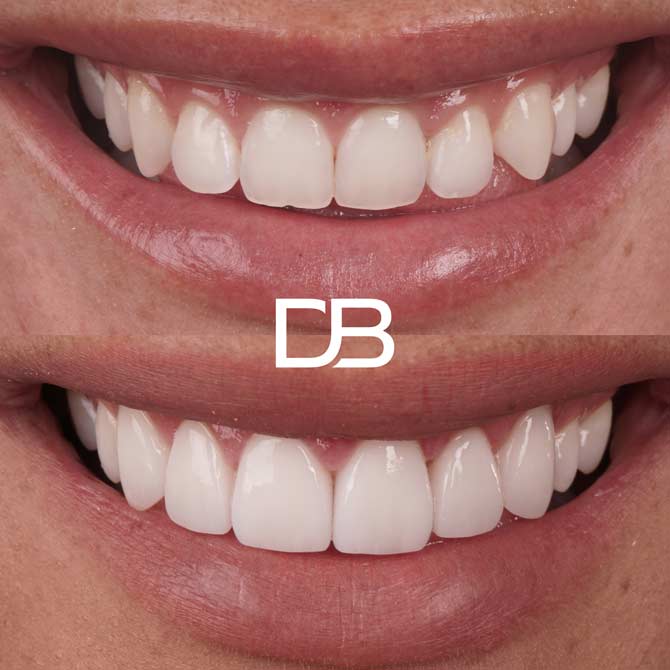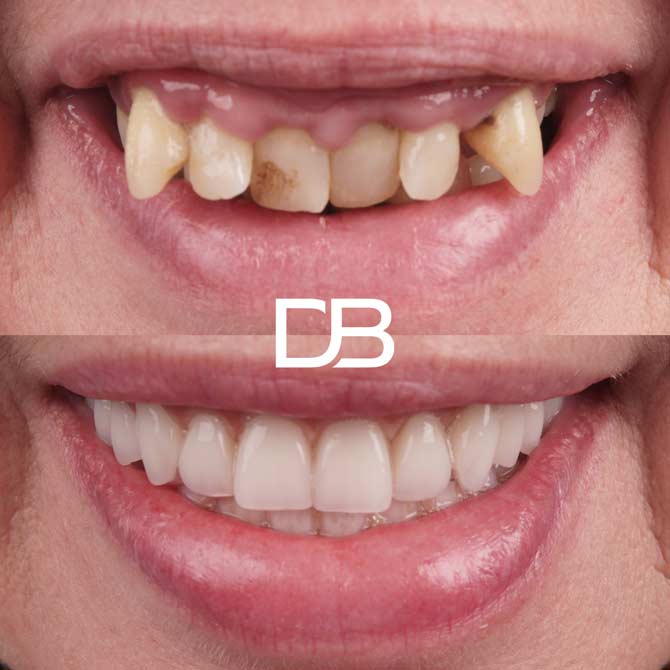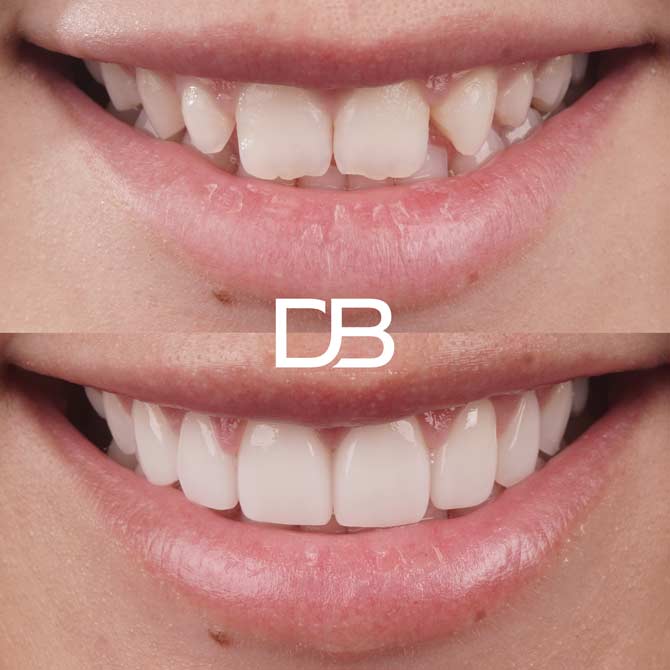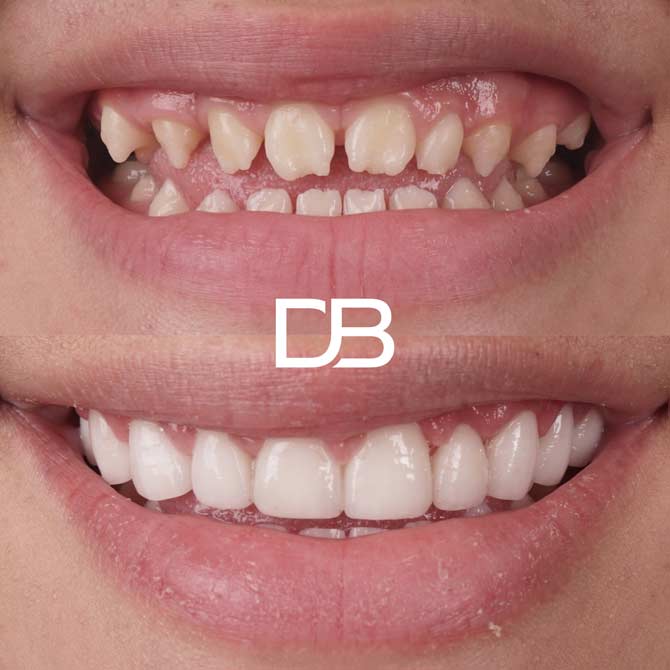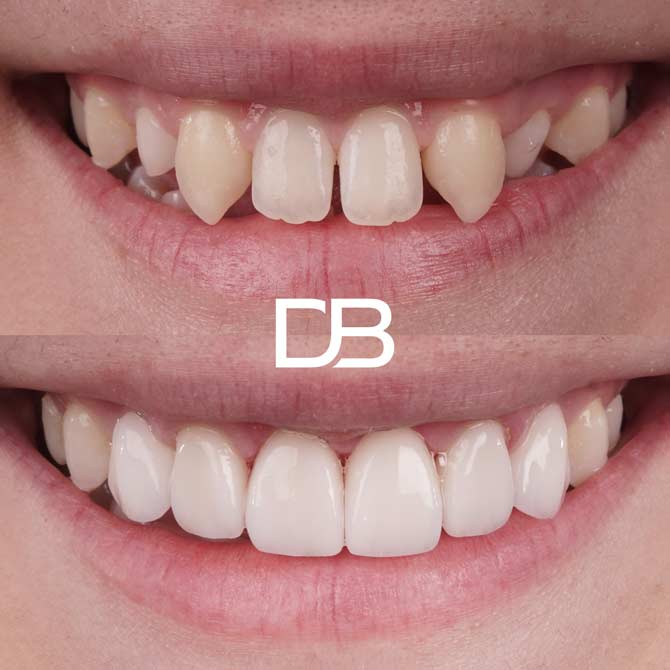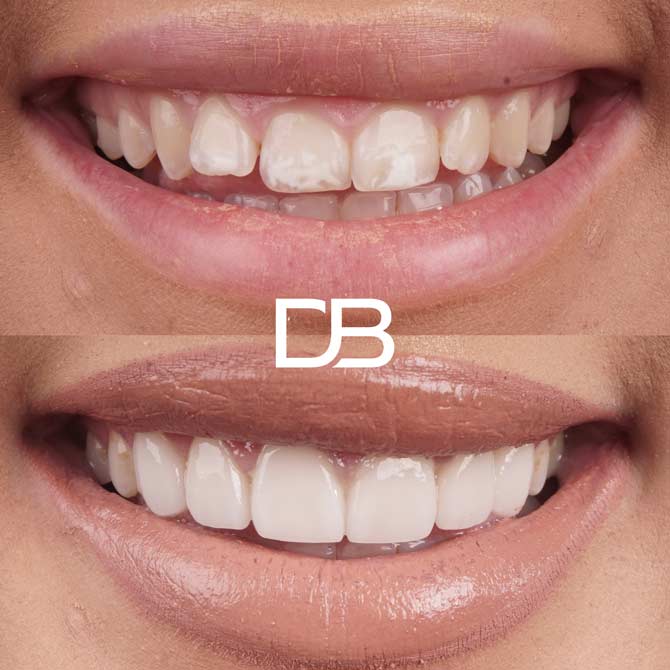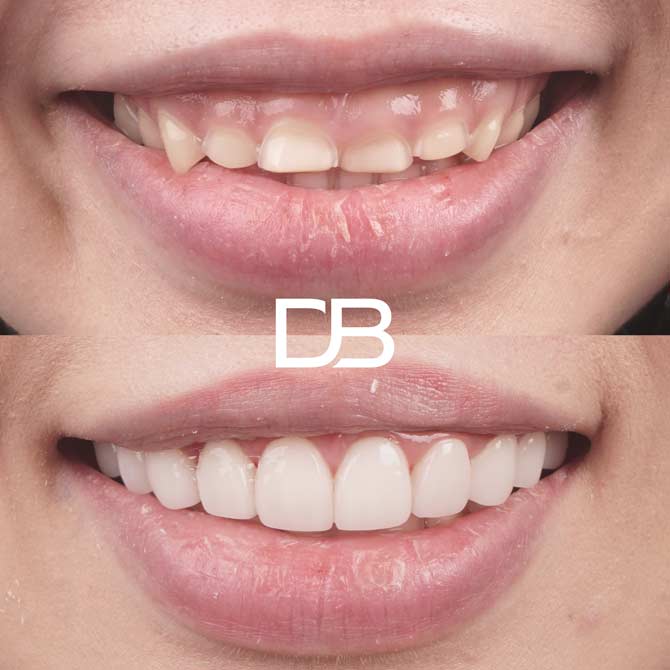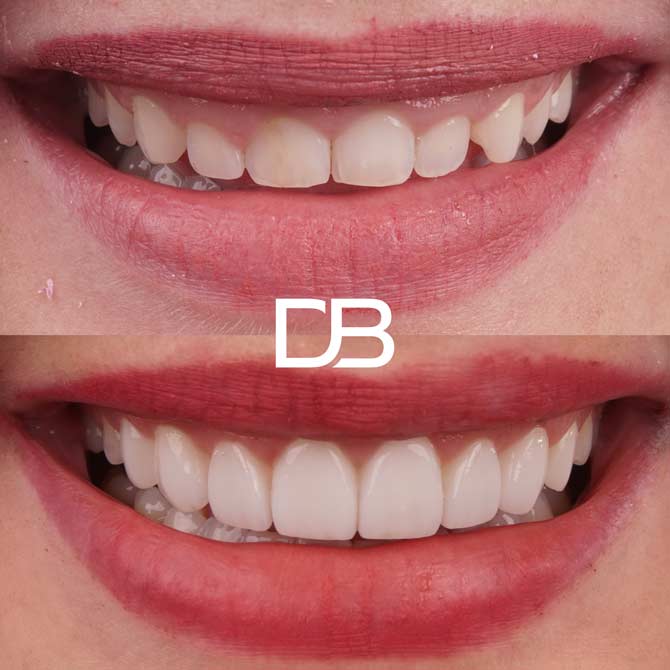
To invest in a radiant smile is to invest in yourself.
Veneers are a popular cosmetic treatment thanks to their ability to create enviable Hollywood-worthy smiles.
As you learn to maintain your investment, you may be wondering, do composite and porcelain veneers stain?
What is a veneer?
Before we dive into whether or not veneers stain, let’s remind ourselves what veneers are.
A veneer is a tooth restoration that is bonded to the front surface of a tooth to mask imperfections and enhance your overall smile.
What are the types of veneers?
There are two main types of veneers: composite and porcelain.
Both types do the same thing, however, due to the different properties of the materials, their aesthetics, strength, and stain resistance abilities differ
Can porcelain or composite veneers stain?
In short, yes, both porcelain and composite veneers can stain. It’s also important to remember that veneers cannot be whitened.
There are many factors that contribute to staining. Believe it or not, the experience and skill of the dentist play a big part in this.
If you choose a dentist with extensive experience in veneers, they can reduce the risk of staining.
An experienced dentist will ensure the veneers have been highly polished so that the surfaces are smooth and close to flawless. A smooth surface is more stain resistant than an uneven one.
The foods and drinks you eat can also contribute to staining. If you have a diet that’s high in colour — for example, if you frequently indulge in curries, berries, and beetroot —your veneers will be at a higher risk of staining.
Drinks that are high in tannic acid, for example, coffee, tea, and red wine, also contribute to the staining of veneers.
If you’re a smoker, it’s important to know that the harmful contents of cigarette smoke will increase the risk of staining.
How to keep composite veneers white

Maintaining great oral hygiene, abstaining from smoking and avoiding stain-pronefoods and drinks will prolong the pearly white colour of your composite veneers.
Your dentist may also recommend wearing a protective night guard to further protect your veneers from damage.
With this in mind, is there a toothpaste for polishing veneers?
Unfortunately, veneers, whether porcelain or composite, do not respond to traditional whitening agents in the same way that natural teeth do. That means whitening toothpaste won’t lighten the colour of a veneer.
In fact, whitening toothpaste can do your veneers more harm than good. Some whitening toothpaste can be more abrasive than regular toothpaste, and using highly abrasive toothpaste can potentially harm the veneers’ surface over time.
It’s always best to use products recommended by your dentist to ensure the longevity of your veneers.
How do you keep porcelain veneers white?
Because of the properties and degree of polishing of porcelain veneers, they are more resistant to staining than their composite counterparts.
However, it is still extremely important to maintain excellent oral hygiene with brushing and flossing to prevent decay under the veneers.
Do veneers stain?

“Do veneers stain?” is a question many ask before committing to this transformative dental solution.
The answer, as explored in this article, is yes—both composite and porcelain veneers can stain. However, the extent to which they stain depends on several factors, including the materials used to craft your veneers, the expertise of the dentist who applied them, and your personal habits and hygiene practises.
While veneers can’t be whitened traditionally, maintaining good oral hygiene, avoiding stain-prone foods, and attending regular dental check-ups will keep your investment shining brightly for years to come.
Choosing the right dentist and following recommended care routines will pave the way for a lasting, radiant smile.






